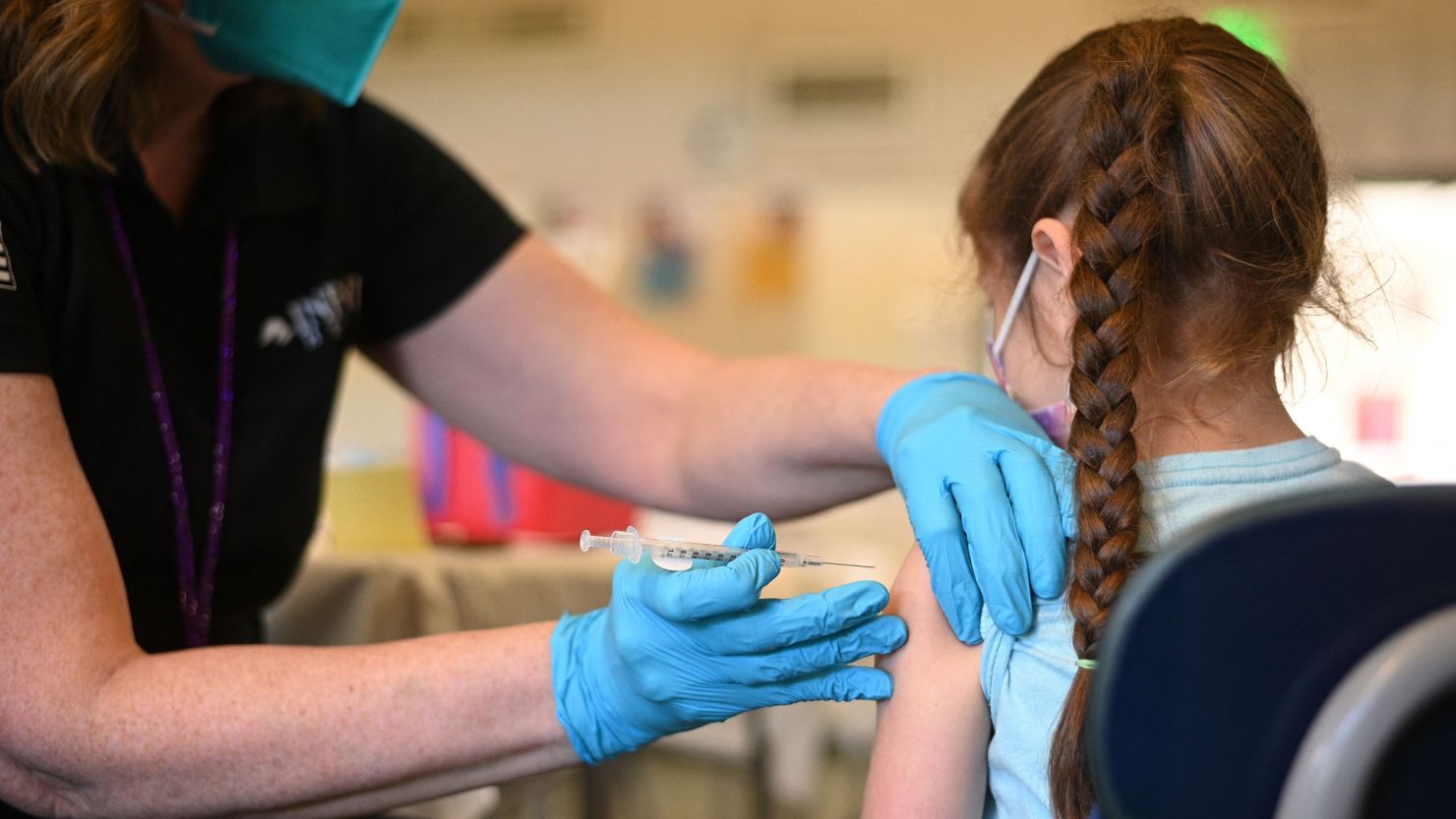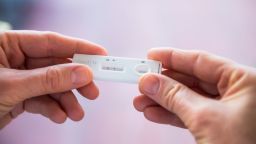Editor’s Note: Rosa Baier, MPH, is an associate professor of practice at the Brown University School of Public Health. Her children are participating in Moderna’s Covid-19 vaccine trial. Vanessa Lamers, MPH, MESc is the assistant director of performance management and quality improvement at the Public Health Foundation. The opinions expressed in this commentary are their own. View more Opinion at CNN.
Last week’s announcement that Moderna plans to seek authorization of its Covid-19 vaccine for young children 6 months through 5 years of age brought us a feeling that’s been fleeting for parents during the pandemic: hope. We immediately texted one another, excited. “Moderna! For our kids!”

As mothers who are also public health professionals, we follow the data. We’ve read extensively about the safety and efficacy of the adult Covid-19 mRNA vaccines from Pfizer/BioNTech and Moderna. And now we are reading Moderna’s news releases carefully, trying to piece together how quickly the company might submit a request to the US Food and Drug Administration for emergency use authorization for young kids. (“In the coming weeks,” said Moderna.)

Following the data has given us confidence in the vaccine’s safety, and we both have tried to enroll our kids in vaccine trials (one of us succeeded with enrollment in the Moderna trial). And now, our families, like so many others, are awaiting news from the Moderna and Pfizer vaccine trials for babies, toddlers and preschoolers.
We want a vaccine for our kids, especially now that many people are unmasking and a subvariant is threatening a new surge. But we know waiting for the FDA’s stamp of approval is a critical part of the process; when a vaccine is available for our young kids, we will rest assured that it has been thoroughly vetted.
In February, we found ourselves in a similar situation, on what seemed like the brink of FDA authorization for the Pfizer vaccine for kids 6 months through 4 years of age. But just as FDA scientists were poised to convene a public meeting to discuss authorization, they decided to delay their review until Pfizer could provide data from a third dose. Our dreams that our kids could get vaccinated as Omicron surged were dashed. Although frustrating, this underscored the scientific rigor and caution of vaccine trials and oversight. There are never shortcuts – not even when we wish they would move quickly.
We’ll know more about Moderna’s trial data when the company applies for emergency use authorization. But what little we know seems hopeful: Last week’s news release shared that kids 6 months through 5 years of age had similar immune responses to the 25 micrograms pediatric dosages as adults who also received two doses of the 100 micrograms adult dosage. The vaccine’s protection against infection was also similar for the kids in the trial compared with adults who received two doses during the same time period when Omicron was dominant.
When we know more about the trial data, we’ll be comparing what we know about the vaccine with what we know about Covid-19’s risks for our kids, families and communities.
Nearly 13 million kids have already been infected – 4.5 million since January alone. What will happen if our kids are infected, maybe not just once, but many times during their lives?
While most kids recover, some are hospitalized or die and Covid-19 has become a leading cause of pediatric death. Some kids may experience later complications, like multisystem inflammatory syndrome in children (MIS-C); be diagnosed with new conditions, like diabetes; or develop other post-infection effects like long Covid, when some previously healthy kids can no longer run or play.
We can’t know in advance how Covid-19 will affect any one child, but we do know that vaccination can reduce some of the most serious risks.
Kids can also transmit the virus to family caregivers, who may be at higher risk. Already, more than 5.2 million kids have lost a parent or in-home caregiver to Covid-19. Because being vaccinated can make people less likely to get very sick and less likely to infect others, vaccinating kids may protect family members.
Nearly all kids are also just a few degrees of separation from someone at high risk, whether close connections (like friends, teachers or grandparents) or more distant connections (like friends of friends). Vaccinating kids of all ages can help to protect those of us who are especially vulnerable by breaking transmission chains and reducing the amount of virus circulating in the community. This enables all of us to get back to doing the things we love.
For all of these reasons, we’re eager to vaccinate our young kids and for others to be able to do the same. We’ll be listening intently when the FDA and US Centers for Disease Control and Prevention hold public meetings to review Moderna’s trial data, as they have for all of the Covid-19 vaccines and age groups.
We invite others to join us in listening to the public meetings to learn more about the safety and efficacy of the Covid-19 vaccines for young kids. Scientists leading the trials will discuss their results and answer questions from the committees of experts who will review the data and make recommendations.
And until we’re able to vaccinate them, we’ll continue to use the proven tools that we know can keep our young kids safe: vaccinating those around them, making indoor air safer, masking, staying home when sick and testing. We can’t wait to add vaccination to the tools accessible to our young kids.
We’re hopeful the wait isn’t much longer.

